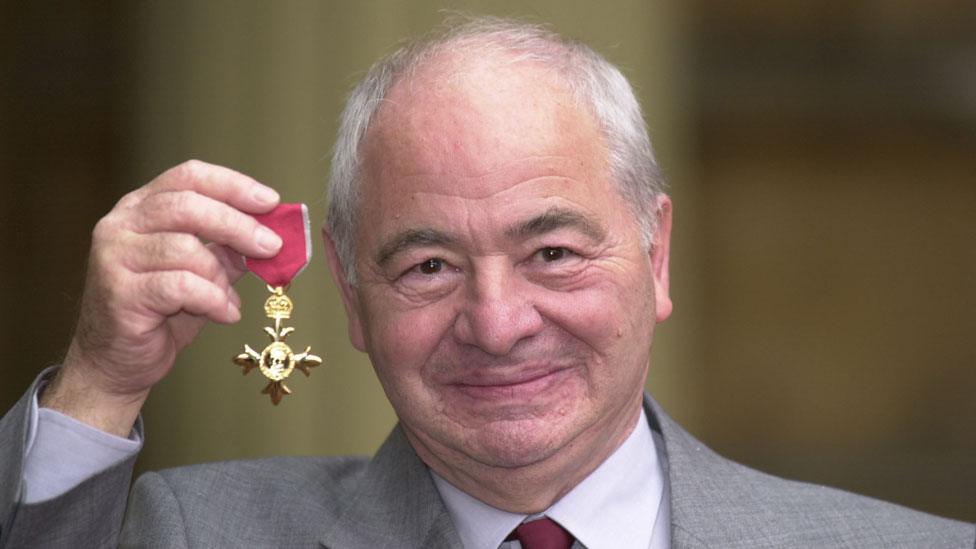Morse's Oxford: The city that inspired Colin Dexter
- Published
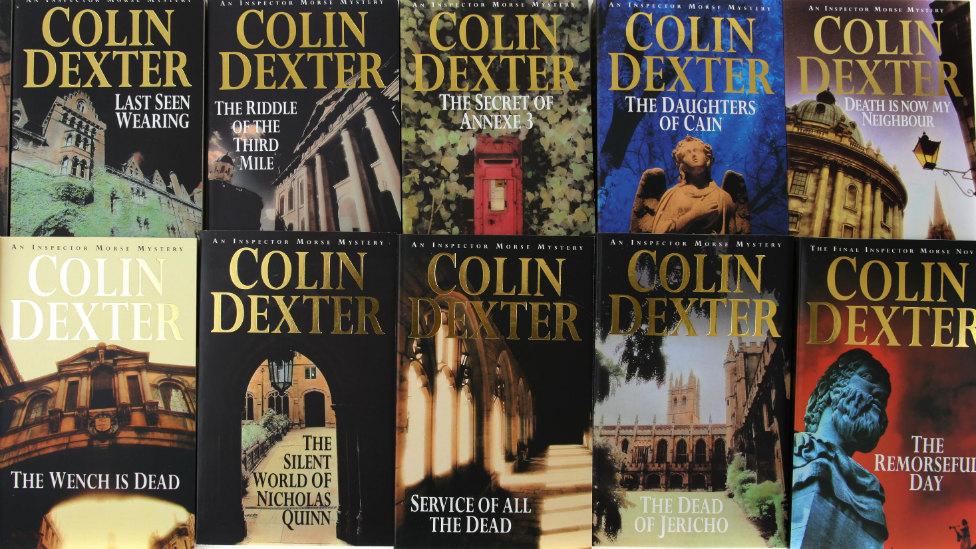
Of the main players in the Inspector Morse stories by Colin Dexter, one remains - the city of Oxford. The character died in The Remorseful Day, published in 1999. John Thaw, the actor synonymous with the role of the curmudgeonly detective, died in 2002. And Dexter himself died earlier this week.
As the Lord Mayor of Oxford once said: "In his novels Colin Dexter has shown our city as having a distinct and separate identity from its famous university."
The "dreaming spires" and attendant well-to-do academics and eccentrics were important factors in the books, but so were the lanes round the city centre, the arterial Iffley and Cowley roads, the north Oxford suburbs of Jericho and Summertown, and the railway station.
Dexter himself was well aware of the city's allure for readers and viewers. When the first episode of the television series was broadcast in 1987, he said: "The huge value for me as a writer is that, even if people haven't been to Oxford, they would love to be in the city.
"I think if the story had been set in Rotherham or Rochdale no-one would be particularly interested to see the streets and side streets, but so many people outside Oxford are delighted to see the High Street, St Giles and the colleges."
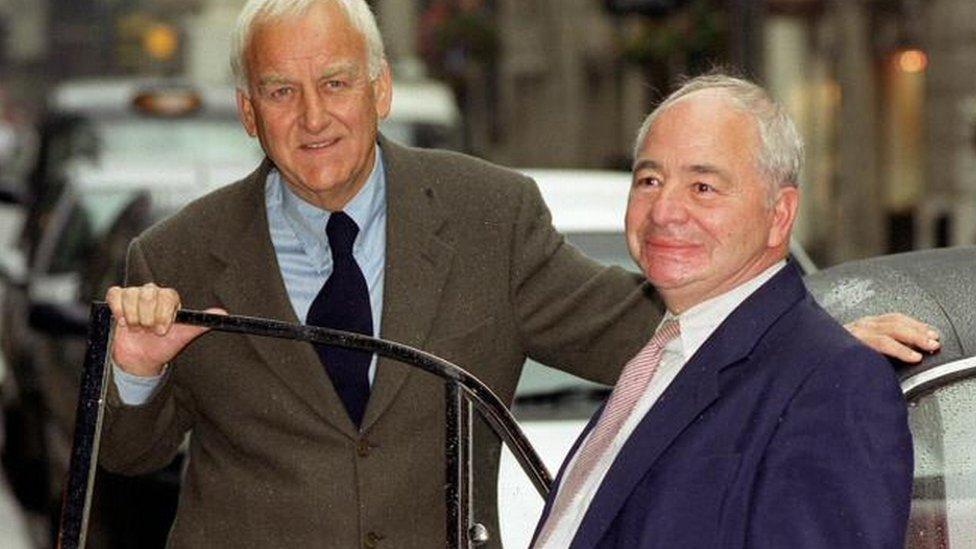
John Thaw, who played Inspector Morse in the television adaptation, pictured with Colin Dexter in 1999
The Randolph Hotel featured prominently in both Dexter's and Morse's lives. Morse was often to be found pondering cases while enjoying a real ale or red wine there, while Dexter's favoured drink in later life - he gave up alcohol for medical reasons - was tonic water.
Staff at the hotel said the writer would often visit various rooms around the hotel to help him get details for a storyline.
"He continued to be a regular at the hotel bar and was so loved by staff, that we renamed the bar after his most famous character - Morse. He was very much part of this hotel and we will miss seeing him perched at the end of the bar or reading a book by the fireside, sipping his drink."
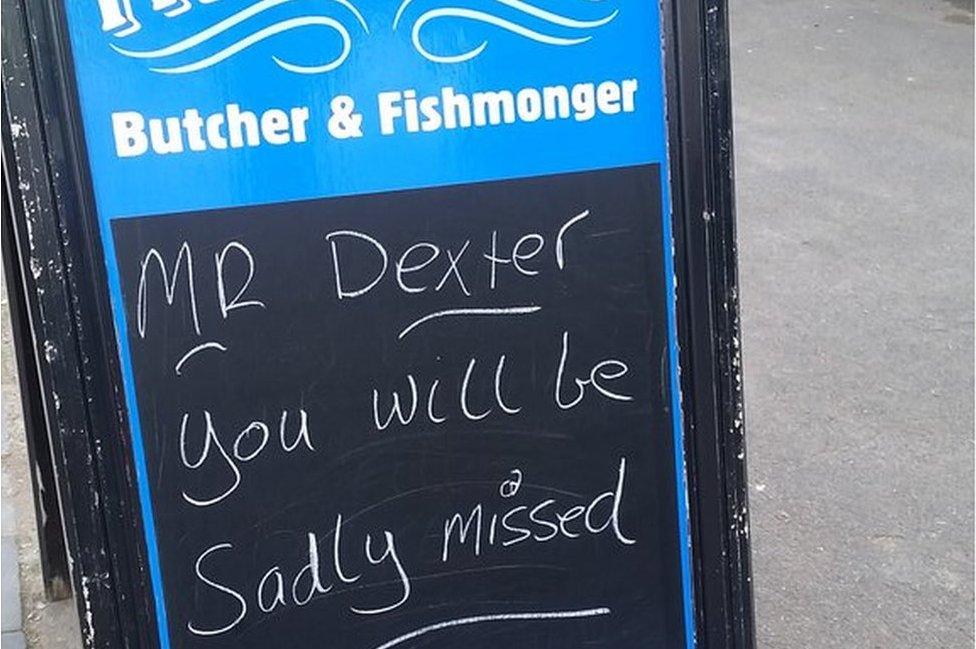
Famous haunts from the books and television series, such as the Ashmolean museum, external and the Bodleian library, external, have expressed sorrow at his death. But, perhaps more significantly, so have lesser-known Oxford institutions, demonstrating Dexter was very much a man of the people - and a man of the real city.
The writer shared his hero's affection for good beer, classical music and cryptic crossword puzzles, but by all accounts lacked his spiky nature.
Alcock's Butcher and Fishmonger in the Summertown area has a blackboard outside saying "Mr Dexter, you will be sadly missed".
Paul England from the shop said: "He was a lovely guy. Always used to see him early in the morning.
"He used to walk down and get his paper and then he always used to come in for a pork pie and a chat. He used to tell us some good stories and jokes, which I think we'll always remember. We just knew him as Mr Dexter who bought his pork pie from the butcher."
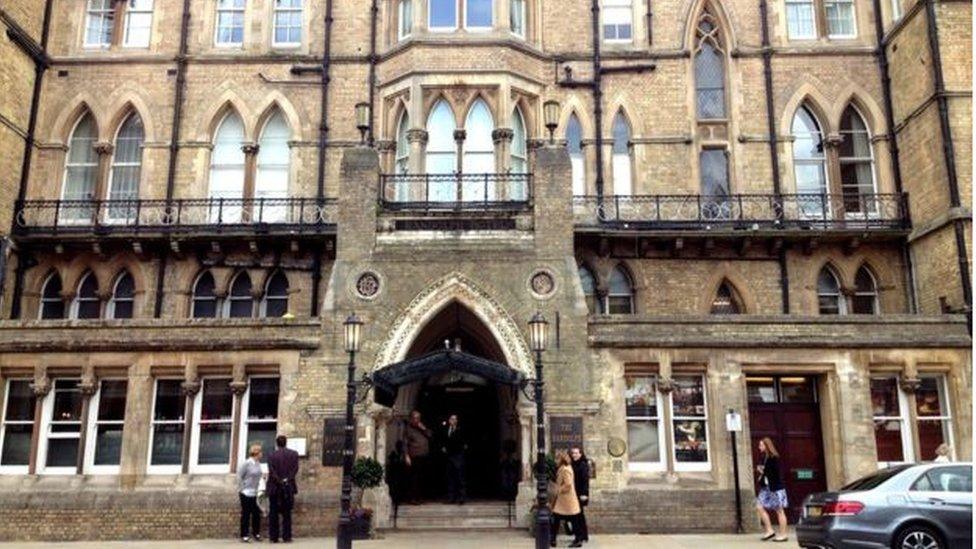
Colin Dexter was often to be found enjoying a drink at the Randolph Hotel in Oxford - as was Inspector Morse
Christiane Fagan fondly remembers him "sitting quietly in the The Dew Drop Inn in Summertown. Such a lovely man", while Carol Maling remembers chatting to him on a bench outside the old Radcliffe infirmary when he was waiting for his wife Dorothy to finish work.
"We used to share biscuits and chocolate," Ms Maling said.
Although he claimed to know very little about actual police procedure, Dexter was a welcome visitor at Oxford CID. Former police officer Dermot Norridge was a detective in the city between 1986 and 2003.
He said whenever he and his colleagues were investigating any incident related to one of the university colleges, they would say they were "having a Morse moment".
Mr Norridge claims the irascible character even had an influence on the sounds heard floating through the corridors of the police station: "There were certain offices where the radio was retuned to Radio 3 or Classic FM. The officers involved may well have been aware of classical music before Morse, but I'm completely convinced this listening to it was down to the influence of the programme.
"I met Colin a few times - he used to come with the crew to the station, and once he was invited to our annual dinner to give a talk. If I had to sum up my memory of him, it would be 'a complete gentleman'".
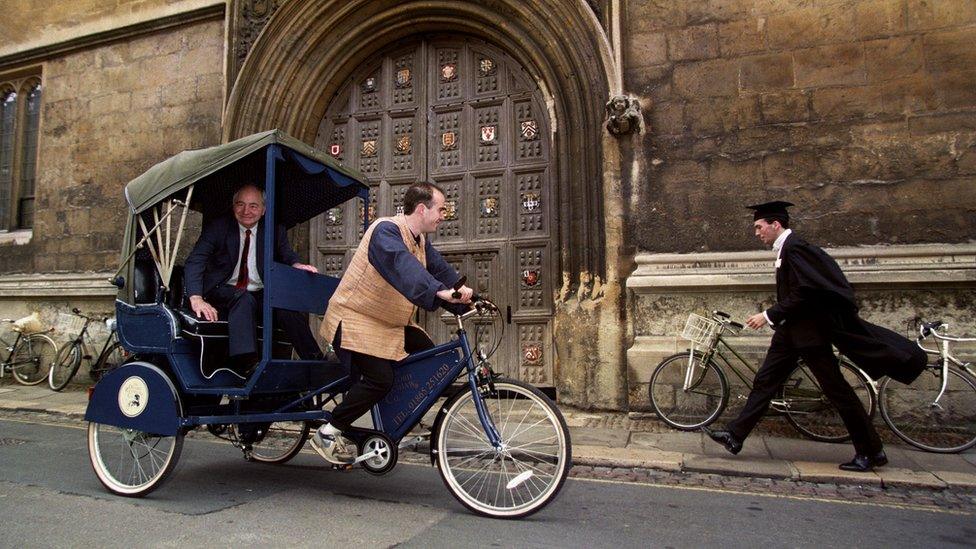
Sue Howlett remembers the author hopping on the bus from Summertown, and always saying hello, while Sue Parsons said she "used to know him years ago when he would to come in to order stationery from Colegroves in Turl Street. Such a lovely man always having a laugh and a joke".
Bob Price, the leader of Oxford Council, says the city will always feel the impact of Dexter's work: "The television programmes, and the way they were filmed, made a huge difference. They really drew people to Oxford."
In his 13th - and final - book Dexter says:
"Morse had never enrolled in the itchy-footed regiment of adventurous souls, feeling little temptation to explore the remoter corners even of his native land; and this principally because he could imagine few if any places closer to his heart than Oxford - the city which, though not his natural mother, had for so many years performed the duties of a loving foster-parent."
He said of that paragraph: "For 'Morse,' read me".
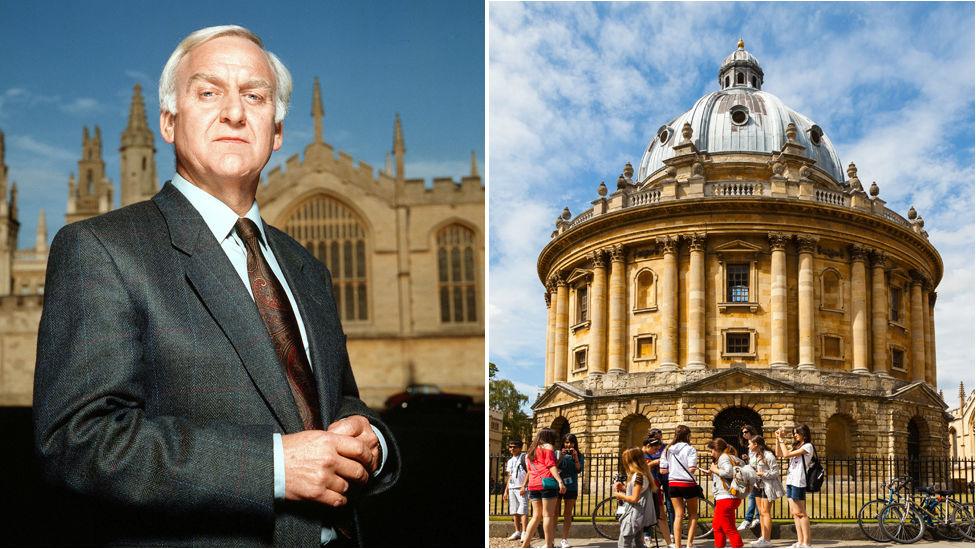

Colin Dexter is not the only author to have a strong link with a specific city. Here are a few more literary locations and their fictional dwellers
Ian Rankin: Edinburgh
The The Inspector Rebus novels are mostly based in and around Edinburgh and take in such landmarks as Arthur's Seat and Holyrood Palace, as well as Rebus' flat.
The novels are characterised by the stark and dark depiction of a city characterised by corruption, poverty, and organised crime. Rebus bends the rules and ignores his superiors while battling his own personal issues. But he does solve the mysteries.
James Joyce: Dublin
Joyce once claimed of his book Ulysses that if Dublin "suddenly disappeared from the Earth, it could be reconstructed from my book".
Published in 1922, Ulysses focuses on the stream-of-consciousness wanderings through Dublin of Stephen Dedalus and Leopold Bloom. Ulysses has been summarised as: "Man goes for a walk around Dublin. Nothing happens." The novel is seen by many as one of the most influential works of the 20th Century.
Jane Austen: Bath
The Assembly Rooms are the setting for many of the evening balls depicted in social satire Northanger Abbey and melancholic love story Persuasion, while the Pump Rooms were the place to mingle with during the day to give off a fashionable air of importance.
Milsom Street, Bond Street (now New Bond Street), George Street and Edgar Buildings are all mentioned in the books.

- Published21 March 2017
